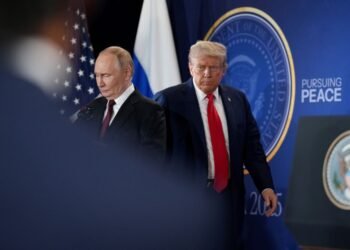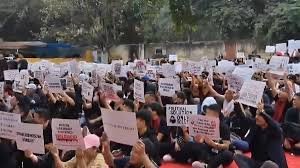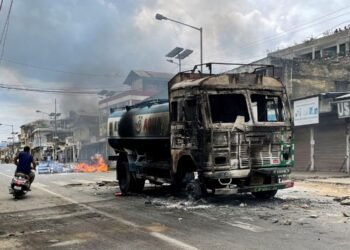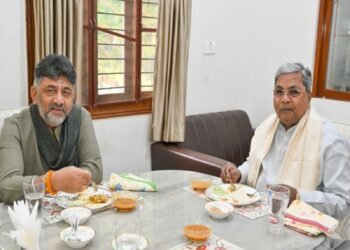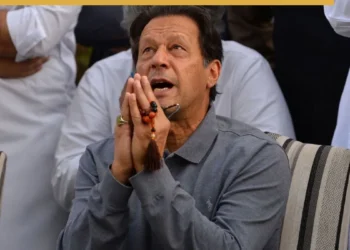BY Navin Upadhyay
July 1, 2025: The June 30 killing of four Kuki National Army (KNA) personnel—including senior commanders—by cadres of the United Kuki National Army (UKNA) has laid bare a growing and dangerous fragmentation within the “leaderless” tribal armed groups in Manipur. While the attack exposed rivalries within these outfits—some under the Suspension of Operation (SoO) framework and others like the UKNA operating outside it—the deeper fault lines lie within the tribal civil society itself.
The latest statement by the Zomi Chiefs’ Association (ZCA) has further underscored this growing disunity. In a press release issued on July 1, the ZCA took veiled but pointed swipes at SoO groups currently engaged in talks with the Ministry of Home Affairs (MHA). The association warned that any move to make the extension of the SoO agreement conditional on allowing “unrestricted movement” across Manipur or the relocation of SoO camps would be seen as a “serious breach of trust.”
The ZCA’s statement appeared as a caution not just to the Indian government but also to fellow tribal groups engaging with the MHA—indicating a lack of internal consensus on both the peace process and the strategy for the Zo people’s political future.
Fragmented Consensus
This divergence is not limited to armed factions. In the absence of a cohesive and decisive leadership, within the broader Kuki-Zo civil society, differences have become increasingly visible. While many groups continue to push for a Union Territory as a resolution to ongoing ethnic tensions, not all stakeholders agree on the path to get there. Some smaller Thadou organizations have voiced dissenting views. Meanwhile, several other smaller tribal bodies , despite backing the UT demand, frequently differ on terms and tactics. They continue to issue separate statements, sometimes in contradiction with one another.
This cacophony of voices has complicated the narrative that the Kuki-Zo are united in their demands. “The biggest challenge now is not the opposition from the state or the Centre, but the fragmentation within,” a senior tribal leader told this correspondent, requesting anonymity.
Echoes of an Older Divide: Kuki-Zo and Tangkhul Naga Clashes
The current fractures within the Kuki-Zo community mirror a deeper and long-standing pattern of tribal disunity in the region—one that has frequently played out in clashes between the Kuki-Zo groups and Tangkhul Nagas, particularly in the hill districts of Manipur. These confrontations, often violent, are rooted in historical contestations over land, identity, and political autonomy.
READ: Zomi Chiefs Warn Centre Against Conditional SoO Extension
READ: ’Manipur: UKNA Claims Responsibility for Killing, Admits Executing Rival Rebel Leader
Skirmishes between the two communities have recurred since the 1990s, when Naga insurgent groups began advocating for a “Greater Nagalim,” a proposed homeland that includes large swathes of Kuki-Zo inhabited areas. The proposal was fiercely resisted by Kuki groups, leading to a cycle of retaliatory violence, mistrust, and territorial assertions that persist to this day.
Though major armed hostilities have reduced in recent years, sporadic tensions continue, especially around sensitive zones like Ukhrul and Chandel. These fault lines are not just geopolitical—they reflect deep-seated anxieties about survival, sovereignty, and historical grievances. Both the Kukis and Tangkhuls accuse each other of monopolising state patronage, manipulating narratives, and marginalising smaller tribes.
ZOMI CHIEFS’ ASSOCIATION
PRESS STATEMENT
30:06:2025Any attempt to link SoO extension with camp closures, forced relocations, or “free movement” in conflict zones without restoring peace first is a grave breach of trust and constitutional duty. pic.twitter.com/FLPHPENL9t
— BeinGTribaL (@_BeinG_TribaL) June 30, 2025
What makes this even more complex is the way each community has formed distinct political alliances—both internally fractured. The Kuki-Zo groups, now divided among themselves over strategy and leadership, find themselves less equipped to present a unified front not just to the Indian government, but also in regional power negotiations with the Nagas.
The recurring flashpoints between Kuki-Zo and Tangkhul groups are a stark reminder that in Manipur, tribal politics is often shaped less by a common identity and more by fiercely competing visions of territory and autonomy.
A Fractured Front
The emergence of discord within the Kuki-Zo ranks comes at a critical juncture. Since the outbreak of ethnic clashes in May 2023, tribal groups have increasingly rallied around the demand for a separate political unit. However, the presence of multiple armed groups—some inside the SoO framework and others outside—as well as varied civil society organizations has weakened the collective bargaining position.
The June 30 UKNA ambush was more than an isolated violent act; it reflected growing internal strife and competition among tribal factions, each with its own agenda, chain of command, and vision for the future.
READ: Kuki Rights Group Urges Halt to Tribal Land Encroachment
With the Centre reportedly considering changes to the SoO framework and with sensitive negotiations ahead, this internal disunity may jeopardize both peace efforts and the push for autonomy.
As the ZCA warned, “peace must not be sacrificed at the altar of political expediency.” But for the Kuki-Zo cause to be taken seriously on the national stage, unity among its constituents may be the first casualty it cannot afford.
At this moment of deepening fragmentation and mounting uncertainty, what the Kuki-Zo movement desperately needs is a leader of vision and moral authority—someone capable of rising above factional loyalties, bridging civil and armed divides, and uniting a scattered people behind a singular, unshakable purpose. Without such a figure—one who, like Moses, can guide his people through the wilderness of violence, mistrust, and political betrayal toward their promised land of dignity and autonomy—the dream of a separate Union Territory risks fading into dust. In the absence of cohesive leadership, the Kuki-Zo struggle may not just stall—it may collapse under the weight of its own internal disunity.



